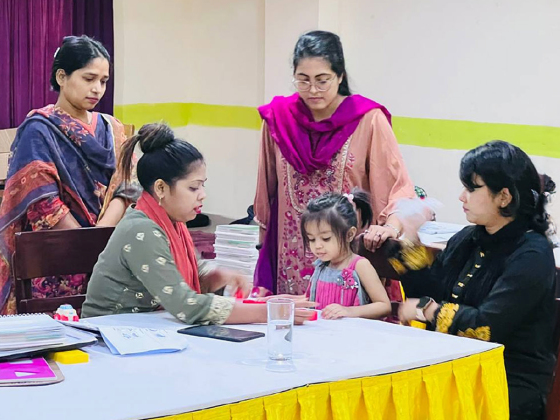Early childhood development (ECD) practitioners often interact with policymakers and funders as part of their work. These moments are opportunities to advocate for the unique needs of young children and their families.
This page shares information, resources, and examples of documents you can use to be ready when you see an opportunity to influence policy around, affect funding for, or raise awareness about the importance of early childhood development.
What is Advocacy?
Play to Learn advocates worked to:

Raise awareness with decision makers about the importance of early childhood development ECD
Increase funding for early childhood development for the children and families in greatest need
.

Improve the quality of ECD programming and funding
.
.
.
Through events, communication, advocacy, and engagement with decision-makers, we’re working to make sure young children’s rights and needs are at the forefront of humanitarian decisions.
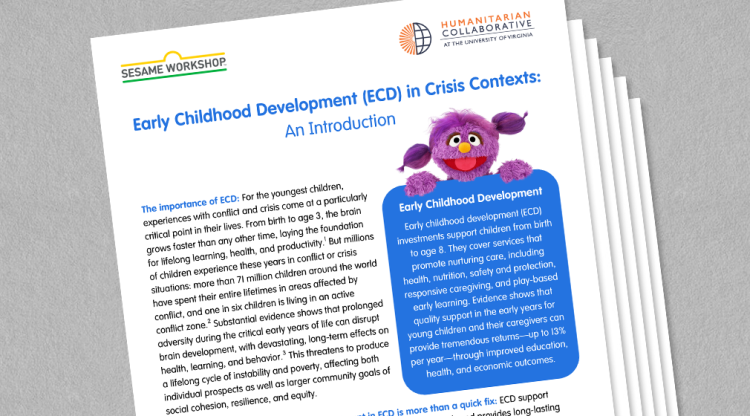
ECD in Crisis Contexts: an Introduction
This resource provides an introduction to ECD in crisis contexts—what it is and why it’s important.
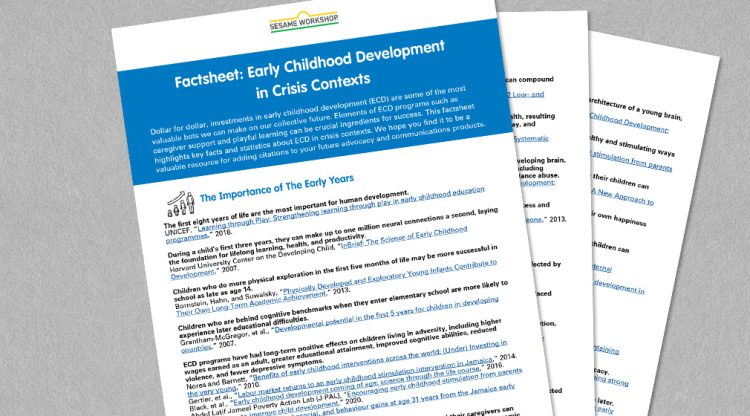
The Case for ECD
This factsheet highlights facts about ECD and why it’s essential. Use this if you’re looking for a research citation about the importance of ECD.
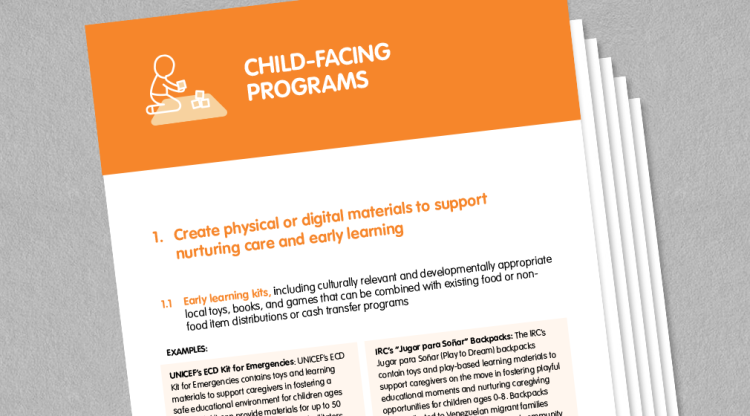
Examples of ECDiE Around the World
This resource introduces types of ECD programs implemented in emergencies, offering a snapshot of categories to encourage ECD in humanitarian settings.
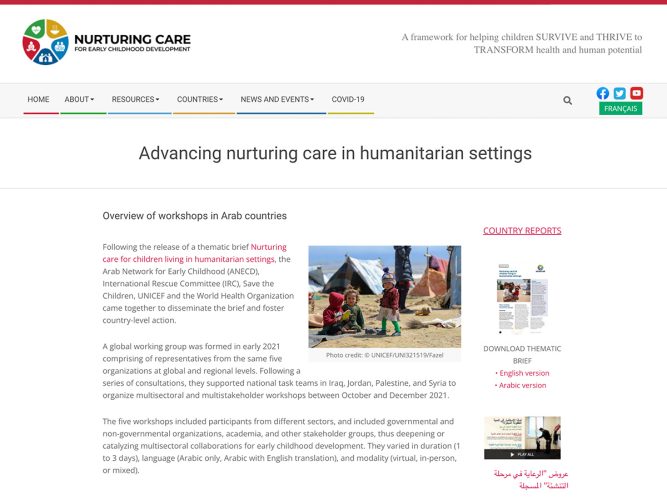
Advancing Nurturing Care in Humanitarian Settings
This is an overview of multisectoral workshop outcomes from Iraq, Jordan, Palestine, and Syria, by ANECD, IRC, Save the Children, UNICEF, and WHO.
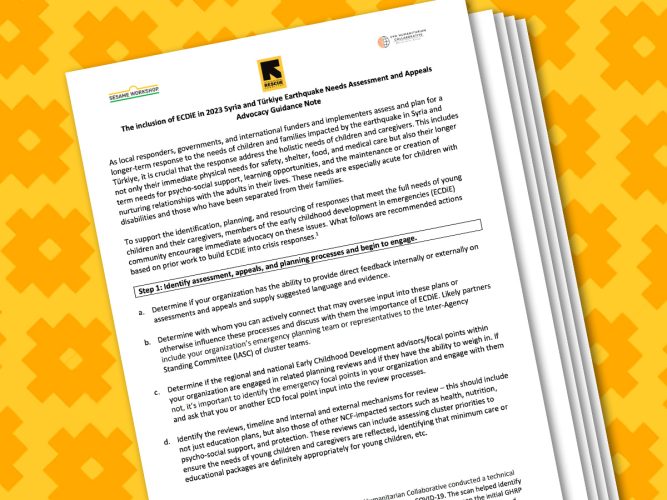
Needs Assessments and Appeals
This focuses on the inclusion of ECDiE in Syria/Türkiye Earthquake Needs Assessment and Appeals by Sesame Workshop, IRC, and UVA’s Humanitarian Collective.
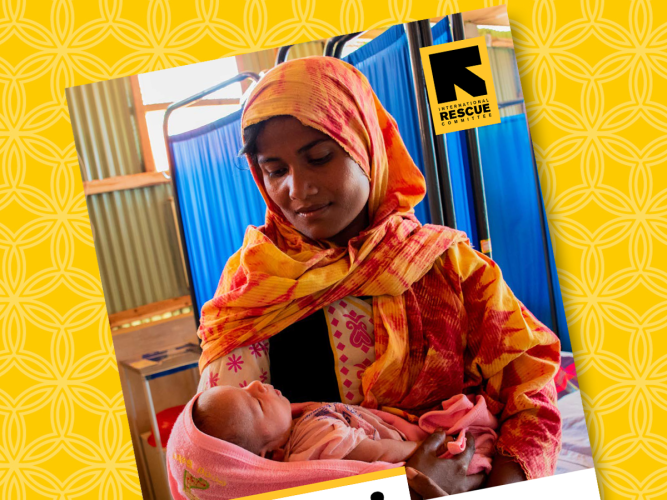
Gindegi Goron Program Report
This report on a program reaching Rohingya mothers and infants shows success in promoting behavior change and the feasibility of ECD programming in overlapping crises.
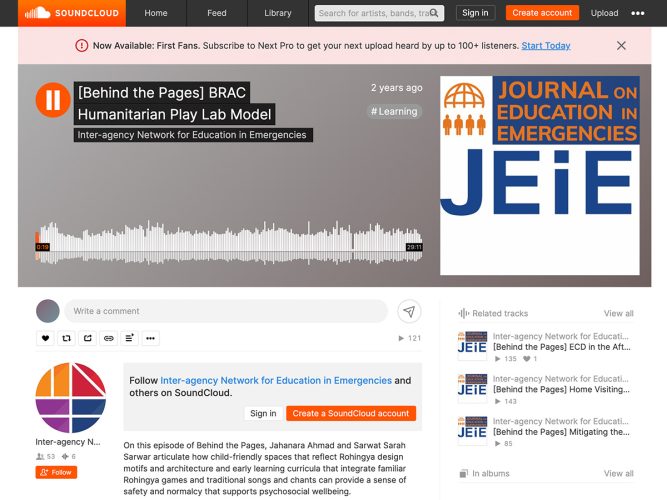
Podcast: Humanitarian Play Lab
Hear how child-friendly spaces reflecting culture, design motifs, and traditional games can provide a sense of safety and normalcy, supporting psychosocial wellbeing.
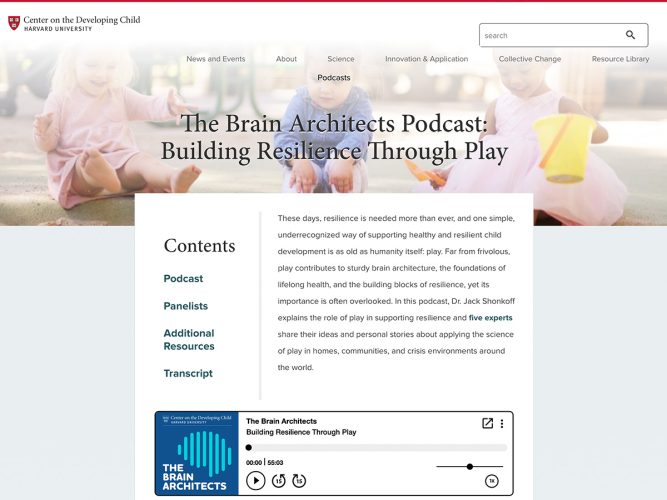
Podcast: Resilience Through Play
This podcast episode explains the role of play in supporting resilience.
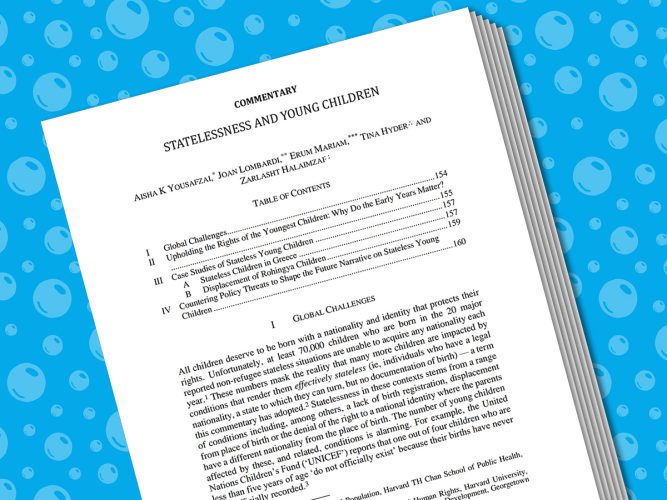
The Rights of Young Children
This resource focuses on upholding the rights of statelessness young children and presents case studies from Greece and the Rohingya population.
Less than 2% of humanitarian aid funding is dedicated to early childhood development. We’re working to increase investments for children and caregivers by providing evidence of the impact of ECD programming and examples for its delivery in crisis contexts.
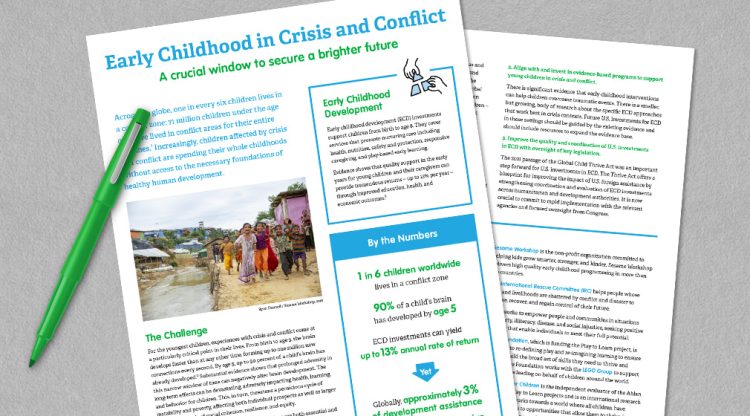
Congressional Factsheet
This factsheet provides Congress with calls to action to support young children. Use this as an example of language to use for similar calls to action.
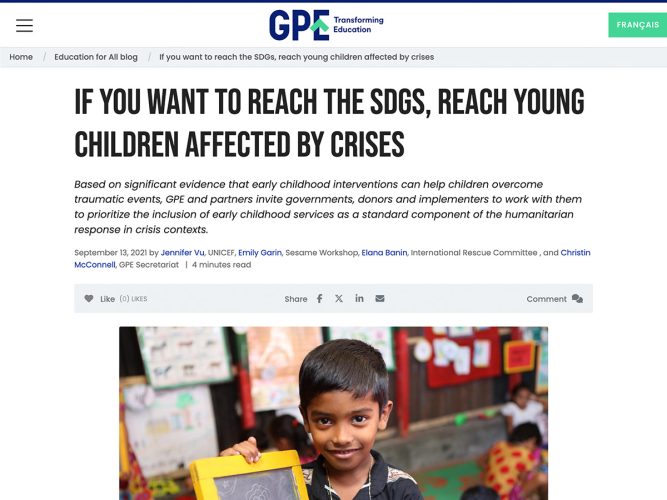
Joint Call for Action
Use this as an example of a joint call to action around ECD.
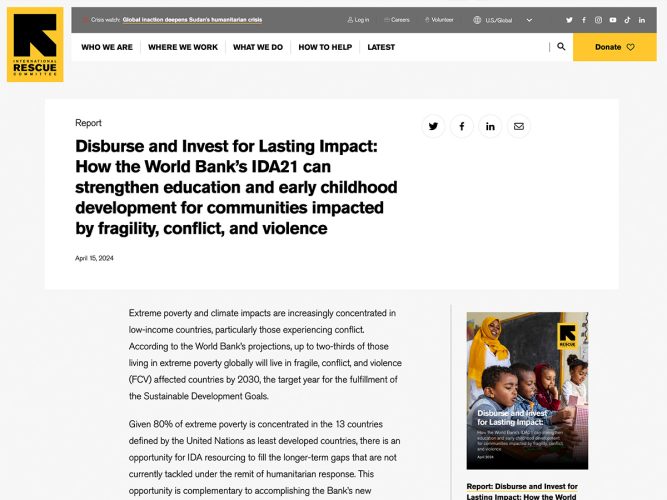
Strengthening Education and ECD
In this brief, Ahlan Simsim is featured as a case study for how the World Bank’s IDA21 can strengthen education and ECD.
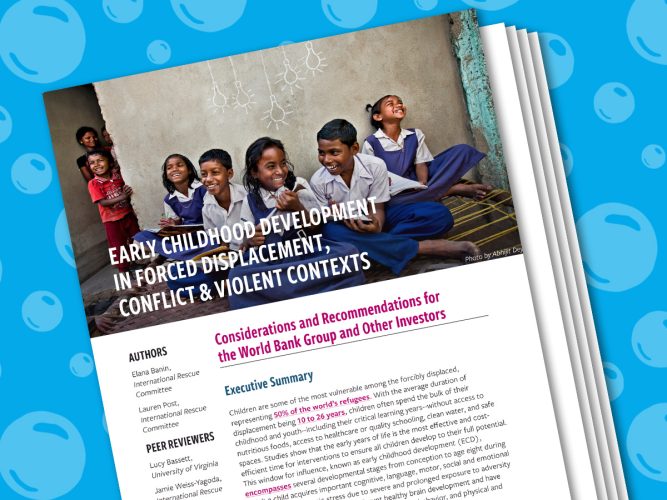
ECD in Crisis Settings
This ECDiE advocacy report features considerations and recommendations for the World Bank Group and other investors.
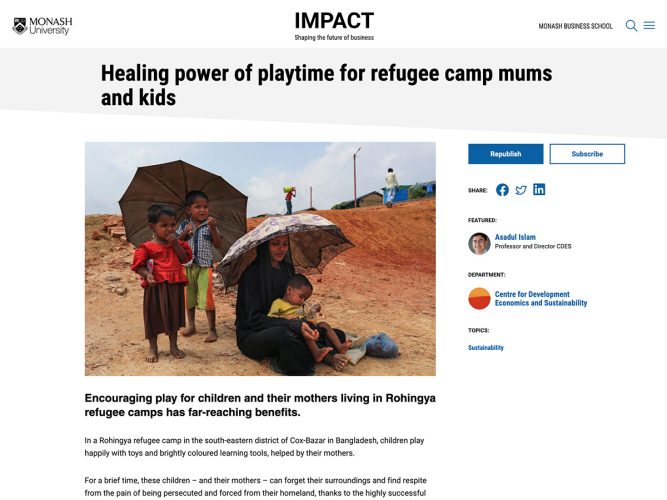
Healing Power of Playtime
The resource describes an evaluation by the BRAC Institute of Educational Development showing the importance of play for children and their caregivers.
We are working to generate and share evidence about what works to bring early opportunities to children and caregivers living through crisis and conflict.
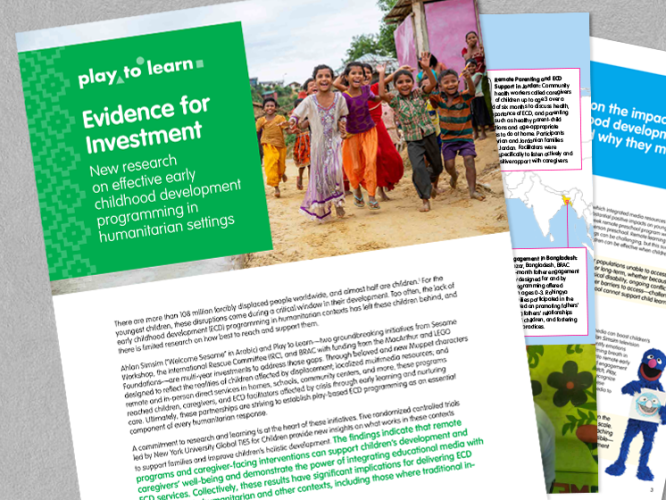
Evidence for Investment
This handout summarizes key findings and implications for future programming from research on the Ahlan Simsim and Play to Learn programs.
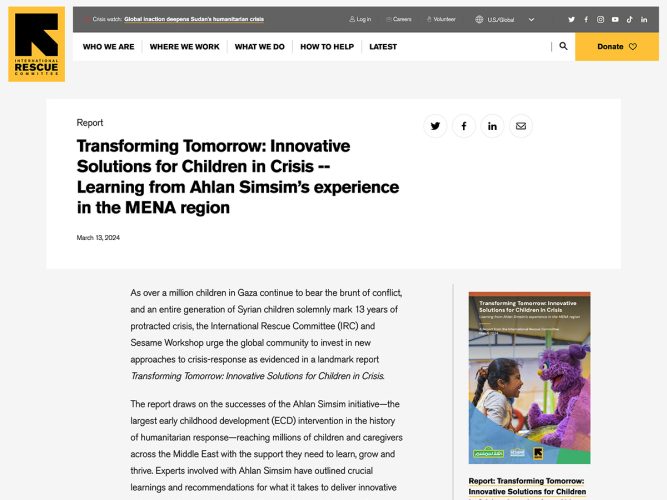
Solutions for Children in Crisis
This report draws on the successes of Ahlan Simsim, with recommendations for funders, policymakers, and implementers.
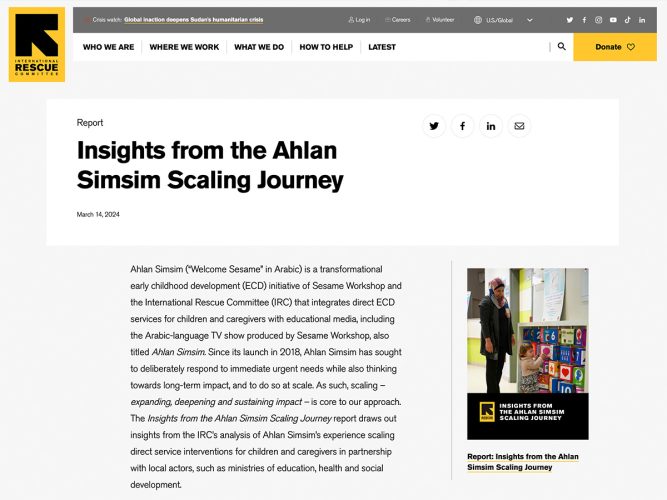
Insights on Scaling
This report offers a way to think differently about big projects, working toward scale and long-term impact. It can be applied to both ECD and other areas.
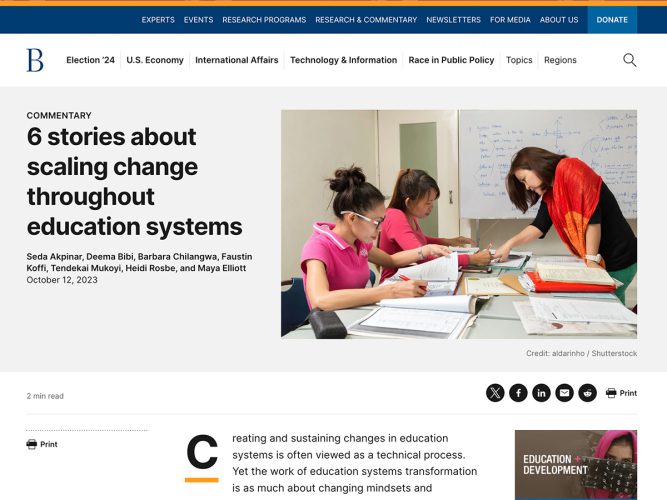
Stories About Scaling Change
This blog highlights insights from scaling through partnerships. It offers a way to think about working toward scale and long-term impact.
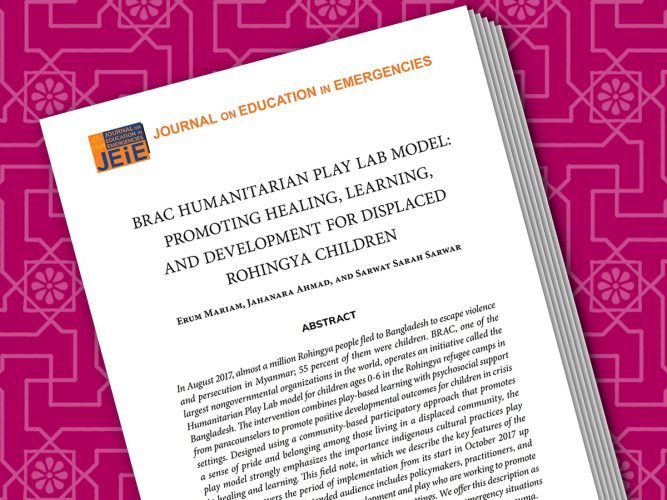
BRAC’s Humanitarian Play Lab Model
The journal article shows how community-driven, culturally contextualised, play-based initatives can improve the quality of ECD interventions.
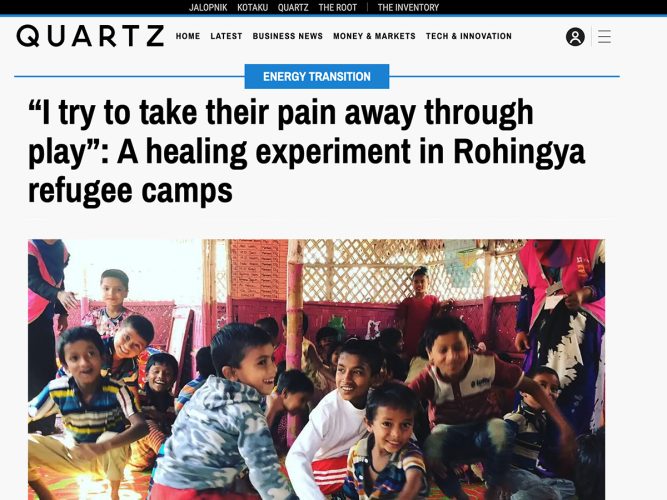
Humanitarian Play Lab Narrative
This article describes what happens inside a humanitarian play lab, using narrative and video.
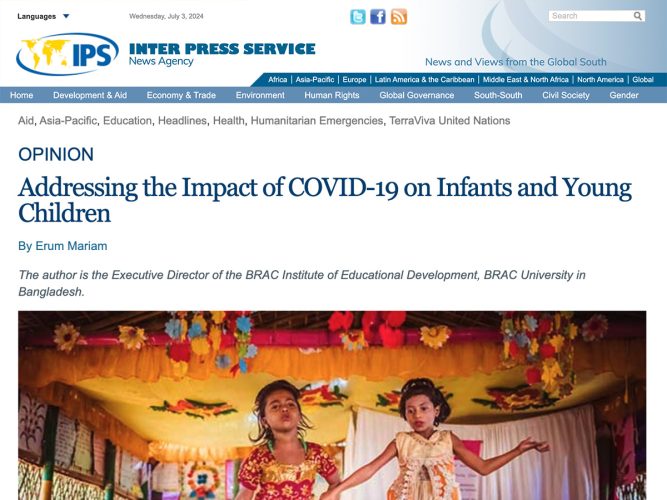
Supporting Families During COVID-19
Use this as an example of a narrative piece that highlights aspects of a multi-layered response.
